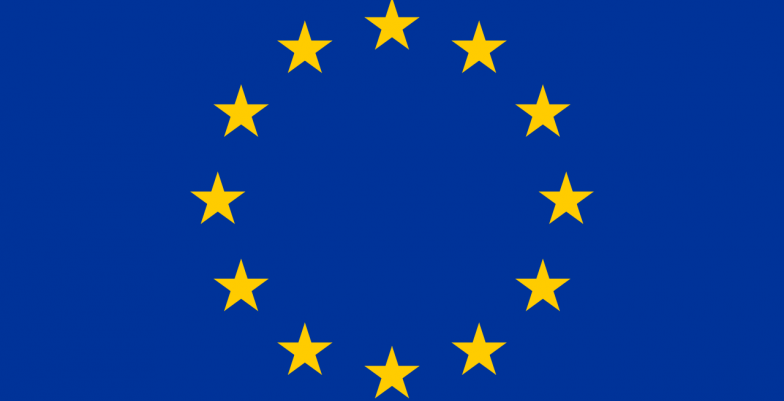Asia – Pacific
The partnership between the European Union and the Asia-Pacific region is one of the most dynamic and strategically important relations in today’s global landscape. This page contains more information about the EU and Asia Pacific.
The EU and Asia-Pacific: Stepping up our strategic partnership in a shifting global context

AU USAnakul/Shutterstock
The EU and the Asia-Pacific region cooperate closely on several critical fronts, reflecting our interconnected futures.
We work together to uphold and strengthen the international rules-based order and the UN Charter, based on shared values of multilateral cooperation to promote peace, stability and prosperity.
Our partnership increasingly shapes global rules on trade, climate, human rights, and peace. We are committed to cooperate to deliver on our shared commitments such as the Sustainable Development Goals (SDGs).
To understand the importance of such partnership, it is essential to explore the strategic dimension of our goals and challenges, and the political dialogues and cooperation frameworks that shape our relations.
EU and Asia-Pacific for shared peace, security and stability
The security dimension is at the heart of the EU’s engagement with Asia-Pacific. The rise of China and India as major economic and security actors, ongoing tensions in the South China Sea, the Korean Peninsula, and increasing competition in the Indo-Pacific require strong international cooperation. The security of Europe and Asia-Pacific is increasingly interlinked, as Russia’s war of aggression against Ukraine shows.
The EU champions peaceful conflict resolution through dialogue and international law and in support of the rules-based international order. In recent years, the EU has substantially intensified security and defence cooperation with the Asia-Pacific region, in support of the implementation of its EU-Indo Pacific Strategy (2021), through new partnerships and dialogues (such as with Japan, Korea, Philippines) and initiatives like ESIWA (Enhancing Security Cooperation in and with Asia).
The EU has a significant focus on maritime security in the Indian and Pacific Oceans, and the region’s vital sea lanes. Beyond maritime domains, the EU has growing security and defence partnerships with Japan and South Korea, focused on cyber security, hybrid threats, and non-proliferation, and is also investing in capacity-building missions – for example, supporting reform of security sectors in conflict-affected Asian states.
Strengthening regional and bilateral engagement
The relationship between the EU and the Asia-Pacific is structured through multiple formal dialogues and cooperation frameworks. We collaborate in multilateral organisations, including the United Nations, World Trade Organization, G20, and regional forums like the East Asia Summit. These multilateral settings provide opportunities to coordinate policies on global challenges such as pandemics, cybersecurity, and disarmament.
At a regional level, the EU’s Indo-Pacific strategy (2021) outlines our vision for a free, open, inclusive, and rules-based Indo-Pacific region and our commitment to cooperate in areas such as maritime security, digital transformation, climate action, and crisis management. The EU engages with ASEAN to support regional integration, peacebuilding, and economic cooperation, underpinned by annual summits and ministerial meetings.
The EU has deep bilateral engagement with partners in the region and a strong presence through its 27 Delegations in Asia-Pacific.
Supporting sustainable growth and connectivity
Economic and investment ties between the EU and the Asia Pacific region are of critical importance for both sides and for the global economy. The EU is a major investor and trading partner for countries across the region, supporting economic growth, job creation, and innovation on both sides. The Asia-Pacific region accounts for nearly 60% of the world’s population and more than 40% of global GDP.
Maintaining open, rules-based trade and investment between the EU and Asia-Pacific is vital to addressing common challenges and securing a balanced global economic order, underpinning not only regional prosperity but also global peace and sustainable development.

European Union, 2025
The EU is accelerating negotiations for deep, sustainable and fair trade agreements with several countries in the region including India and Indonesia, and is fast advancing the implementation of existing agreements with Japan, South Korea, Singapore, or Vietnam.
The EU is also stepping up its strategic engagement with Asia-Pacific through Global Gateway - creating smart, clean, and secure links in digital, energy and transport sectors and strengthening resilience in climate change adaptation and mitigation, health, education, and research systems.
Working together to advance the green transition
Sustainable and inclusive growth means tackling together global challenges related to climate change and ensuring environmental protection.
Asia-Pacific is highly vulnerable to environmental risks such as rising sea levels, extreme weather events, and loss of biodiversity.
The EU actively cooperates on climate action with the region through technology sharing, sustainable energy projects, and multilateral efforts such as the Paris Agreement. Shared concerns over climate change provide a strong basis for innovation partnerships in green technology and renewable energy.











